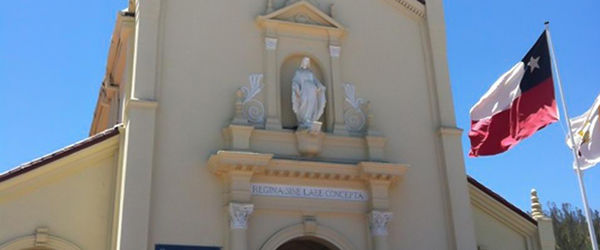Senate Bill 131, which stalled in the Assembly Appropriations Committee last week, was moved from the committee to the full Assembly Aug. 21.An Assembly vote is expected soon on SB 131, which would (effective Jan. 1, 2014) retroactively eliminate the civil statute of limitations against private schools and private employers in claims involving childhood sexual abuse.After having been stymied by receiving only six votes Aug. 14 --- three short of the number needed to pass --- Senator Jim Beall of San Jose, the bill’s sponsor, requested and received “reconsideration,” a routine measure that means the author can request that the committee vote again on the bill. The Assembly Appropriations Committee meets every Wednesday.The Aug. 21 vote was 12-4 in favor, with one abstention; the Aug. 14 vote was six ayes, four noes and seven abstentions.The California Catholic Conference, one of several entities opposed to SB 131, sharply denounced the committee’s action, citing a “parliamentary maneuver” that enabled the bill to move out of committee and to the Assembly floor.“The fact that supporters of SB 131 were forced to rely on procedural tricks to get their bill out of committee points out the obvious,” the CCC said in a statement. “It’s a bad bill. It discriminates against victims of child sexual abuse. It discriminates against private and non-profit organizations like the Church. It continues to protect public schools and government workers from lawsuits filed by victims and it even prevents victims from suing their actual abuser. “That’s wrong and we will continue to work with the coalition of civil rights organizations, private schools, private universities, service clubs, religious groups and others who support victims, to oppose SB 131 and give all victims equal access to justice.”Prior to the Aug. 21 vote, the CCC noted that parishioners who emailed or otherwise contacted their Assemblymembers on the bill “helped raise concerns in the lawmakers’ mind --- especially as to why the bill would leave the vast majority of abuse victims without any recourse.”Those opposing SB 131 assert that the bill is discriminatory against both private institutions and victims who were allegedly abused in public institutions. Opponents also include the California Association of Private School Organizations, the California State Alliance of YMCAs, the California Police Activities League, the California Council of Nonprofit Organizations (CCNO), the California Association of Joint Power Authorities and other religious organizations and private schools.Veto: ‘Not everything in life is for sale’Assembly Bill 926, which would have required women to be compensated for donating providing human oocytes (egg cells) for research, was vetoed by Gov. Jerry Brown Aug. 13. It had passed the Assembly, 54-20, in May, and the Senate, 24-9, in July.“Not everything in life is for sale nor should it be," Brown said in his veto statement. "In medical procedures of this kind, genuinely informed consent is difficult because the long-term risks are not adequately known. Putting thousands of dollars on the table only compounds the problem."The ProLife Council, a California affiliate of the National Right to Life Committee Inc., praised the governor’s decision, saying that AB 926 was an effort by the California Institute of Regenerative Medicine (CIRM) to generate more human eggs for experimentation.“AB 926 was CIRM's attempt to induce more women to surrender to the human experimentation regimen,” the Council stated. “They are having a hard time getting enough human eggs for their human experimentation.”Moreover, the Council added, “While pro-lifers lobbied hard on the bill, it must be recognized that many 'pro-choice' groups were also deeply concerned that the financial pressures on women would be too much to resist.”Tina Stevens, director of the Alliance for Humane Biotechnology whose organization coordinated a “No on 926” campaign, called the veto “a win for women’s health, especially for poor women too easily exploited by undue financial influence. The governor made a courageous, principled move.”Opponents of AB 926 also included the Black Women’s Health Imperative, Breast Cancer Action, Cancer Prevention and Treatment Fund, Center for Genetics and Society, Council for Responsible Genetics, Friends of the Earth, International Center for Technology Assessment, National Women’s Health Network, Organs Watch and the Pro-Choice Alliance for Responsible Research.

